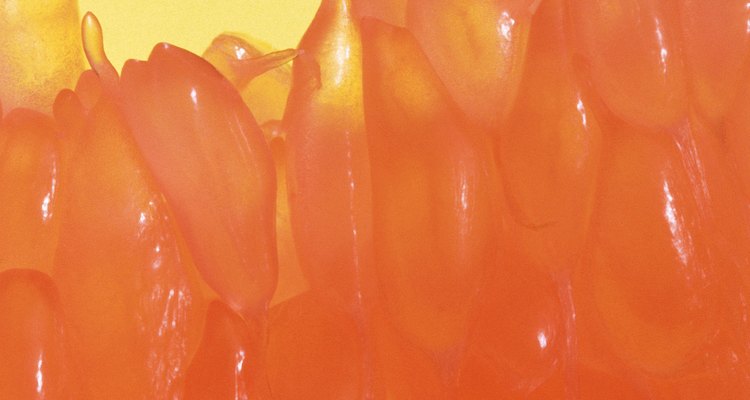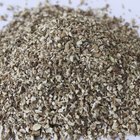
Seborrheic dermatitis is a skin condition that can cause dandruff and red, itchy, scaly skin. It most typically affects the scalp, but can also appear on other areas of your body, such as your back, upper chest or face. External application of grapefruit seed extract may provide relief. Because of the possibility of side effects, consult a medical professional before using grapefruit seed extract.
Fungus
A type of yeast fungus -- malessezia -- may cause seborrheic dermatitis, according to MayoClinic.com. Many commercially sold grapefruit seed extract products prove capable of fighting infections caused by yeast, fungus and bacteria. But seborrheic dermatitis is not an infection, and malassezia yeast is normally present in your skin's oily secretions. So it remains uncertain whether malassexia causes seborrheic dermatitis. However, antifungal creams, foams and lotions prove helpful in clearing up seborrheic dermatitis, which points to the likelihood that a fungus is responsible for the condition. This also means that grapefruit seed extract’s antifungal properties would likely alleviate the discomfort of seborrheic dermatitis as well.
Treatment
You could add a few drops of grapefruit seed extract to your shampoo or apply the extract directly to your skin. More traditional treatments for seborrheic dermatitis include the antifungals ketoconazole and ciclopirox, both of which can be found in shampoos and skin care products. Corticosteroids are also often suggested for seborrheic dermatitis to reduce itching and inflammation. According to MayoClinic.com, seborrheic dermatitis is a chronic condition. Treatments may relieve symptoms but will not make the condition go away.
Chemical Antimicrobials
The antimicrobial benefits of grapefruit seed extract that might treat conditions such as seborrheic dermatitis stem from chemicals added to many products. Pure grapefruit seed extract will not treat seborrheic dermatitis or infections, according to Donal O'Mathuna, an herbal researcher and bioethicist. He reviewed international grapefruit seed extract studies published between 1999 and 2009 and reported his findings in "The Irish Times." If a grapefruit seed extract product works to kill off microbes such as the malessezia fungus that cause seborrheic dermatitis, then it contains added chemicals such as synthetic preservatives and disinfectants.
Possible Side Effects
If taken orally, grapefruit seed extract puts you at risk for serious side effects. External use of grapefruit seed extract may prove less problematic, but use caution. Grapefruit in any form may make it difficult for your body to properly metabolize medications. You may end up with an excess of medication in your system, elevating your risk of side effects. Additionally, many grapefruit seed extract products contain a synthetic preservative called benzethonium chloride, which can cause collapse, convulsions and comas. Since external applications for seborrheic dermatitis may enter your bloodstream through the pores in your skin, consult a doctor prior to using grapefruit seed extract.
Related Articles

What Are the Benefits of Ashwagandha in ...

Grapefruit Extract for Eczema

What Is Aloe Good For?

Can Borage Oil Help Acne?

Pine Tar Soap for Psoriasis

Aloe Vera Gel As a Wrinkle Reducer

Aloe Vera & Seborrheic Dermatitis

Arnica for Acne

Palmolive Shampoo Ingredients

Tazorac Cream & What it Does for Acne

Dandelion Root for Reduced Acne Symptoms

Chasteberry for Acne

Burdock Root for Acne

Uses for Castor Oil on the Skin

Pycnogenol and Acne

Shampoos for Hair Loss Due to ...

Can Bag Balm Help Acne?

Apple Cider Vinegar Treatment for ...

Lemon Essential Oil for Eczema

What Are the Benefits of Extrapone ...
References
Writer Bio
Kathryn Gilhuly is a wellness coach based in San Diego. She helps doctors, nurses and other professionals implement lifestyle changes that focus on a healthy diet and exercise. Gilhuly holds a Master of Science in health, nutrition and exercise from North Dakota State University.
Photo Credits
Comstock/Comstock/Getty Images